“The Market of Make-Believe Farmers Market: Dramatic Play That Grows Real Math Skills”
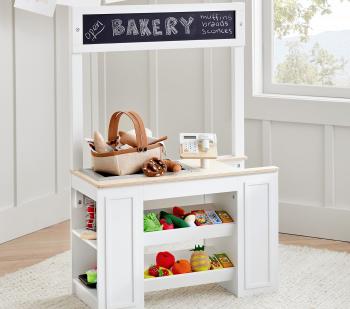
- School:
- Freeport Elementary
- Subject:
- Literacy
- Teacher:
- Laura Upton
- Students Impacted:
- 6
- Grade:
- K-5
- Date:
- October 11, 2025
Investor
Thank you to the following investor for funding this grant.
The St. Joe Community Foundation - $1,000.00
Goal
The Market of Make-Believe Farmers Market Dramatic Play Center will increase student achievement by providing a hands-on, accessible, and engaging way for students with disabilities to practice both functional and academic math skills. Through dramatic play experiences such as shopping, sorting produce, counting money, and measuring items, students will connect imagination with real-world application. This center will foster gains in early numeracy, functional independence, and communication, while also promoting social interaction and classroom community.
Many of our special education students require concrete, hands-on learning experiences to build understanding of abstract math concepts. Traditional paper-pencil tasks often do not meet their needs or provide enough opportunities for meaningful practice. Students benefit most from instruction that includes multiple opportunities for practice with visual supports, manipulatives, and role-play, all of which increase retention and generalization of skills. In addition, real-world math concepts—such as money use, measurement, and sorting—are essential life skills but can be difficult to embed without authentic contexts. The farmers market play center creates a natural, motivating environment where these skills can be taught and reinforced.
The objectives of this project are multi-layered. Students will demonstrate progress in functional math skills such as counting, identifying coins and bills, making simple exchanges, and measuring produce, with growth documented through their individualized education program (IEP) goals and progress monitoring data. The center will also increase student engagement, as students are more likely to participate in market play when props, visuals, and adult support are provided. Equally important, the play environment will foster communication and social interaction, giving students opportunities to practice role-play language such as, “I would like to buy…” or “Here is your change,” while developing turn-taking, requesting, and shared attention. Finally, students will generalize their skills beyond the center by transferring what they learn to classroom activities, community outings, and other functional tasks.
The impact on student achievement will be significant. By embedding math instruction in a high-interest, meaningful setting, students will receive repeated, scaffolded practice that supports their academic and functional growth. They will build functional independence in money use, counting, and measuring while simultaneously developing communication and social skills that are critical for daily living. Just as importantly, they will gain confidence and ownership of their learning through imaginative role-play, which supports motivation and self-regulation. This project will directly support students’ IEP goals, strengthen math readiness, and create measurable learning gains, while also fostering inclusion, engagement, and a strong sense of classroom community.
Category
Other -
What will be done with my students
Students in the special education classroom will participate in a variety of hands-on, imaginative, and functional math activities within the Market of Make-Believe Farmers Market Dramatic Play Center. The center will be equipped with seasonal produce props, price tags, pretend money, shopping baskets, scales, and other thematic materials. Students will rotate through roles such as shopper, cashier, and produce manager, which allows them to practice both academic and social-emotional skills in a supported environment.
As shoppers, students will select produce, count out pretend money, and practice role-play conversations with peers and staff, supporting communication and social interaction. As cashiers, they will practice identifying numbers, counting coins and bills, giving pretend change, and using scales to measure produce. As produce managers, students will sort fruits and vegetables by color, size, or type, reinforcing classification skills and providing opportunities for problem-solving. Each role encourages functional math, independence, turn-taking, and communication, while providing repeated opportunities for students to generalize skills in a fun, meaningful, and accessible way.
The center will also include visual supports and adapted extension activities — such as number cards, shape and color posters, and simple problem-solving tasks — so that students of varying ability levels can participate successfully. Student work, such as drawings, sorting tasks, or market-themed math practice, will be displayed in the area to reinforce pride, ownership, and a sense of classroom community.
Project Timeline
Month 1 – Setup & Introduction
Prepare the Farmers Market center with adapted props, visuals, and communication supports.
Introduce the center using structured modeling, social stories, and guided play to ensure accessibility.
Begin with basic, concrete skills such as sorting produce, matching numbers, and completing simple shopping exchanges with support.
Months 2–3 – Skill Development
Expand activities to include identifying coins and bills, matching prices to items, and measuring produce with support.
Rotate roles weekly so that students experience shopper, cashier, and produce manager.
Provide visual prompts, role-play scripts, and adult modeling to encourage communication and independence.
Months 4–5 – Integration & Generalization
Introduce more complex skills, such as making simple exchanges, comparing quantities, and combining prices.
Connect math learning to other functional classroom activities, such as cooking (measuring ingredients), science (sorting objects), or art (matching colors and shapes).
Encourage peer-to-peer interactions with less adult prompting to foster independence and confidence.
Month 6 – Showcase & Reflection
Host a culminating “Classroom Farmers Market Day” where students set up stands, rotate through all roles, and demonstrate what they have learned.
Document growth through student work samples, photos (no faces if restricted), and teacher observations.
Reflect with students on their accomplishments, celebrating their progress in math, communication, and independence.
Impact for Special Education
This project ensures that students with disabilities receive consistent, scaffolded practice in both academic and functional math skills. By embedding instruction in a dramatic play setting, students are motivated to participate, supported through visuals and prompts, and given opportunities to practice communication and social skills in context. The gradual timeline allows for repeated practice, skill reinforcement, and generalization, helping students grow in confidence, independence, and real-world readiness.
Benefits to my students
The Market of Make-Believe Farmers Market Dramatic Play Center will provide students in my special education classroom with meaningful, hands-on opportunities to practice both academic and functional math skills in a way that is engaging, accessible, and fun. Many of my students require concrete, visual, and interactive experiences to understand abstract concepts, and this project offers a supportive environment where math comes to life through play. By shopping, sorting produce, counting money, and measuring items, students will strengthen early numeracy skills while also practicing communication, social interaction, and independence.
This project supports achievement by embedding functional math into daily routines. Students will work on skills such as identifying numbers, recognizing coins and bills, classifying objects, and making simple exchanges. At the same time, the dramatic play setting will encourage language development and social skills as students role-play conversations, take turns, and build confidence in peer-to-peer interactions. These opportunities not only support math growth but also foster independence, problem-solving, and community building in the classroom.
The project goal is to help students connect imagination with real-world application so that they are better prepared to use math skills beyond the classroom. Progress will be measured through teacher observations, student work samples, checklists, and anecdotal notes documenting how students are applying math, communication, and social skills during play. Growth will also be evaluated by comparing how students participate in the center over time — moving from heavily supported practice to more independent role-play and problem-solving.
By providing consistent, scaffolded practice in a dramatic play environment, the Market of Make-Believe will allow students with disabilities to make measurable gains in both academic and functional skills, while also increasing their confidence and independence. This project will not only support achievement in math, but also strengthen the life skills and social connections that are critical to student success in school and beyond.
Budget Narrative
To bring the Market of Make-Believe Farmers Market Dramatic Play Center to life, the requested supplies include furniture, storage solutions, pretend produce, dramatic play props, and math-focused tools. Each item was chosen to create a realistic, hands-on, and engaging learning environment tailored to the needs of students in special education.
The Play Market Stand (Pottery Barn) will serve as the central structure of the center, while the Foldable Storage Basket Rack and Handmade Seagrass Wicker Baskets will keep items organized and accessible for students. Plastic shopping baskets will allow children to collect and carry items as they role-play as shoppers, building independence and motor skills.
To make the market feel authentic, a variety of pretend produce and food props will be included, such as artificial apples, pears, bananas, oranges, pumpkins, strawberries, bread, donuts, cupcakes, corn, carrots, and even felt pumpkin pie. These items will support classification, sorting, counting, and color recognition while keeping play seasonal and fun. The Natural Pulp Fiber Berry Baskets will add realism and provide opportunities for organizing and transporting produce. The Melissa & Doug Cleaning Play Set will extend play and encourage responsibility by letting students care for their space.
For math skill integration, the center will include a Wooden Toy Cash Register, pretend play money, and a wooden scale so students can identify numbers, practice counting coins and bills, measure produce, and make simple exchanges. The Learning Resources Magnetic Apple Fractions, Farmer’s Market Color Sorting Set, and Pick ’n’ Sort Food Groups will provide additional opportunities to practice sorting, classification, and early fraction concepts through hands-on play.
Together, these items will allow students to fully immerse themselves in dramatic play, practicing functional math skills such as counting, sorting, measuring, and using money, while also building communication, social interaction, and independence. The materials are durable and adaptable, ensuring that the center can be refreshed seasonally and used for years to come.
Items
| # | Item | Cost |
|---|---|---|
| 1 | Play Market Stand (Pottery Barn) | $370.00 |
| 2 | Handmade Seagrass Wicker Storage Basket set | $37.00 |
| 3 | Learning Resources Magnetic Apple Fractions | $35.00 |
| 4 | Learning Resources Magnetic Apple Fractions | $35.00 |
| 5 | Learning Resources New Sprouts Pick ‘n’ Sort Food Groups | $20.00 |
| 6 | Learning Resources Farmer's Market Color Sorting Set | $29.00 |
| 7 | Melissa & Doug Deluxe Sparkle & Shine Cleaning Play Set | $40.00 |
| 8 | Learning Resources Pretend Play Money | $10.00 |
| 9 | Learning Resources Pretend Play Money | $10.00 |
| 10 | 3pcs Small Plastic Shopping Baskets Kids Grocery Baskets with Handles | $16.00 |
| 11 | 3pcs Small Plastic Shopping Baskets Kids Grocery Baskets with Handles | $16.00 |
| 12 | plusmile Wooden Scale Wooden Scale | $50.00 |
| 13 | 12 PCS Fake Oranges | $15.00 |
| 14 | Artificial Bread | $20.00 |
| 15 | Artificial 5 Heads Banana | $16.00 |
| 16 | Artificial Pears Set | $16.00 |
| 17 | Artificial Apples | $19.00 |
| 18 | Foldable Storage Basket Floor Rack | $69.00 |
| 19 | Felt Pumpkin Pie | $20.00 |
| 20 | Fake Donuts | $10.00 |
| 21 | Fake Cupcake | $15.00 |
| 22 | Fake Plastic Strawberries | $14.00 |
| 23 | Hard-Boiled Eggs with Easy-Peel Shell | $10.00 |
| 24 | Plastic Carrot | $16.00 |
| 25 | Plastic Corn | $19.00 |
| 26 | Fake Fruit Artificial Apples | $20.00 |
| 27 | Natural Pulp Fiber Berry Basket | $14.00 |
| 28 | Wooden Toy Cash Register | $39.00 |
| Total: | $1,000.00 |

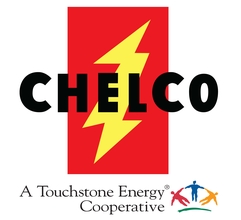
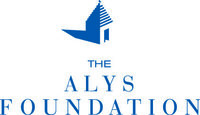
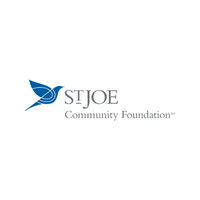
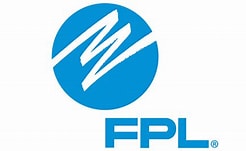

Share
Please share this page to help in fulfilling this grant.
Email to a Friend